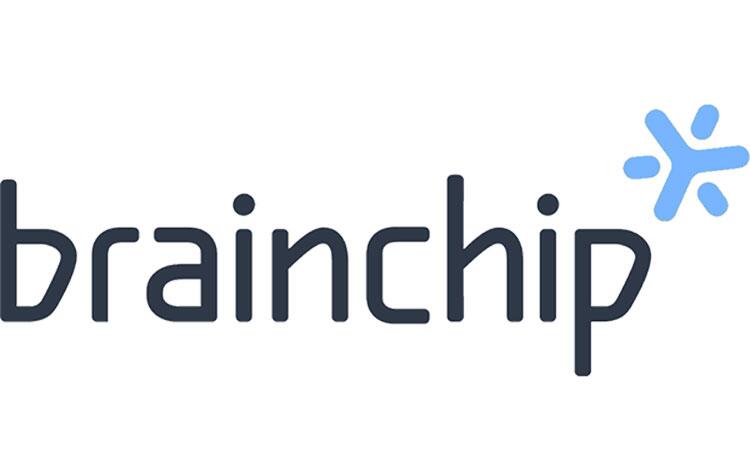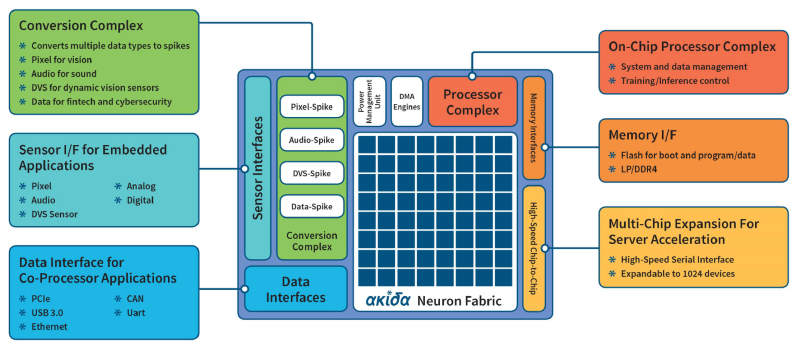BrainChip Announces SNN ML Accelerator
Article By : Rick Merritt

Company's Spiking Neural Network accelerator looks set to be the first commercial product on the market in third quarter of 2019
SAN JOSE, Calif. — BrainChip described what it claims will be the first commercial accelerator for spiking neural networks (SNNs). Akida should sample in fall 2019, delivering nearly an order of magnitude more throughput/watt than a Movidius Myriad 2 at about the same price and accuracy.
In imaging applications, the chip is expected to process as many as 1,400 frames/second/watt using an 11-layer SNN. It will consume less than a watt and cost about $10, targeting computer vision as well as financial and cybersecurity analysis.
SNNs are a form of machine learning, related but different from the convolutional neural nets now widely used by web giants for jobs like voice and image recognition. SNNs use a simpler, one-shot training method and are well-suited to tasks such as face recognition in low-resolution and noisy environments such as surveillance video.
BrianChip developed its own version of an SNN neuron based on a hybrid of technology that it licensed and acquired. The heart of the chip is an array of 1.2 million neurons managed by an unnamed RISC core on the chip.
The company is making an early version of its programming tools available, including Python scripts. The chip handles both training and inference tasks using data sets supplied by customers.
BrainChip finished the RTL design of the neuron fabric but not the rest of the chip that it expects to make in a 28-nm node. The company still has $11 million in cash from $30 million that it raised in a sale of securities on the Australian stock market, where it is listed.
In the last six months, the company made about half-a-million dollars in revenue for its first product, an FPGA accelerator board for SNNs launched last year, targeting video security markets.
BrainChip got its start 10 years ago as a spinout from the University of Toulouse research effort that was creating custom software for users in France. BrainChip now consists of a software team in Toulouse, a hardware group in southern California, and last year, it brought on new management mainly in Silicon Valley.
In SNNs, IBM’s True North chip is more widely known but has been more of a general-purpose research vehicle, although the U.S. Air Force said in June 2017 that it would use it in a supercomputer. Stanford and the European Union also support research efforts in SNN accelerators.
— Rick Merritt, Silicon Valley Bureau Chief, EE Times
Subscribe to Newsletter
Test Qr code text s ss



